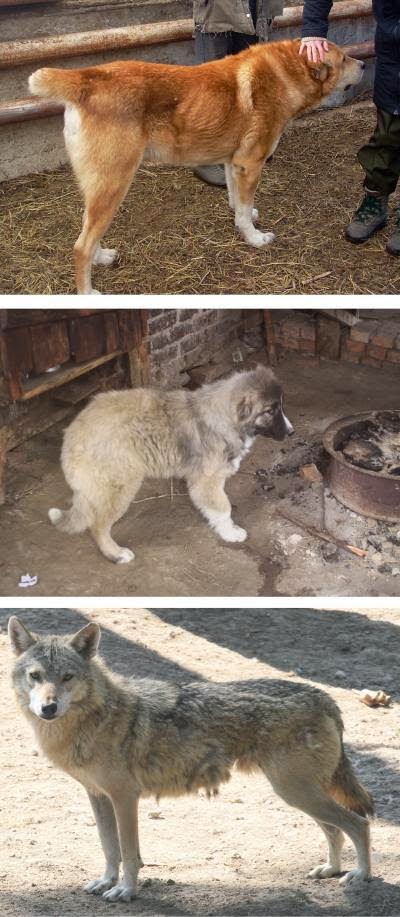By Alton Parrish.
The study was undertaken as part of Dr. Kopaliani’s work exploring human-wolf conflict in Georgia. “Since the 2000s, the frequency of wolf depredation on cattle has increased in Georgia, and there were several reports of attacks on humans. Wolves were sighted even in densely populated areas,” she explained.
“Reports suggested that, unlike wild wolves, wolf-dog hybrids might lack fear of humans, so we wanted to examine the ancestry of wolves near human settlements to determine if they could be of hybrid origin with free-ranging dogs such as shepherds,” she added.
The research team examined maternally-inherited DNA (mitochondrial DNA) and microsatellite markers to study hybridization rates. Microsatellite markers mutate easily, as they do not have any discernible purpose in the genome, and are highly variable even within a single population. For these reasons, they are often used to study hybridization.
“We expected to identify some individuals with hybrid ancestry, but it was quite surprising that recent hybrid ancestry was found in every tenth wolf and every tenth shepherd dog,” said study co-author Tarkhnishvili.
“Two dogs out of the 60 or so we studied were inferred to be first generation hybrids,” he added.
The study also found that about a third of the dogs sampled shared relatively recent maternal ancestry with local wolves, not with wolves domesticated in the Far East, where most experts believe dogs were first domesticated.
The research team used several alternate methods to confirm their results, and came to the same conclusions with each approach.
The shepherd dogs studied are a local breed used to guard livestock. “Ironically, their sole function is to protect sheep from wolves or thieves,” Kopaliani explained. “The shepherd dogs are free-ranging, largely outside the tight control of their human masters. They guard the herds from wolves, which are common in the areas where they are used, but it appears that they are also consorting with the enemy.”



